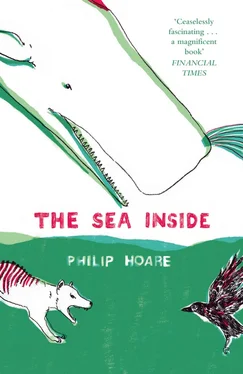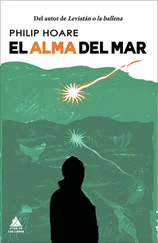Perhaps that’s why the rest of my father’s life was so resolutely ordinary and ordered. He worked for the same cable company for forty years in a redbrick factory built on reclaimed land between the docks and the walls of the old town, a hundred yards from the station where he had first arrived. Every day, at the same time, my mother waved him off. Every day, at the same time, he came back for tea. He might as well have been clocking in and out of his own home. What he did between his punctual departure and his prompt return was a mystery. He seldom spoke about his work, nor did we ask him about it.
In the summer after leaving school, I went to work in the same factory. I was a fitter’s mate, a position which required me to wear grey overalls and accompany my designated fitter on various jobs, in none of which did I perform any kind of useful function. As we set out for the day or came back to the workshop before going home, having smeared our clothes with grime to make it look as though we’d been busy, I’d look up into the glass box where my father worked above the factory floor and see him there with his colleagues. They wore bright white coats to distinguish themselves from us in our oily overalls, and they all seemed to wear spectacles, of a National Health design; anything else would have been an unwonted vanity.
Lit by the luminous shed over our heads, for a few, tantalising glimpses I saw my father as he was seen by others: as a person, rather than a dad, up there in the Test Department, with its graphs and dials and meters of resistance, dedicated to certifying six-inch cables which would be wound onto elephantine wooden drums, stencilled with yellow paint and unrolled under the ocean, anchoring England to America.
Now I see my father through the framed photographs that still stand in my mother’s bedroom, and I’m taken aback to realise how much like him I’ve become: from his shorts and the bag slung about his neck as he stands on a seaside cliff, to his love of the sea itself, which he would scan through his heavy binoculars, breathing in deeply as if to clear his lungs of Bradford soot. We share the same shape, the same bones that show through my skin; what I have been and what I may become. How could I have thought myself so different?
Recently I went back to Yorkshire. It was a long journey, each connection with its own story. The dawn suburban train, with workers’ eyes stuck with sleepy dust and toothpaste masking morning breath. The peak commuter train, full of furious notes on laptops and phones forever seeking attention. The midday train, relaxed with senior citizens, and students locked into their own, dreamier electronic worlds. And finally an afternoon shuttle explosive with children turned out of school, shouting and laughing and dodging the ticket collector as he came down the compartment, jumping off at the next halt, spilling onto the platform and vanishing as quickly as they’d appeared. As we were drawn to the north, to its wasteland and wealth, I was struck, as I watched through the window, how different it was, an abrupt view of smoke stacks, as evocative as any university’s spires to its alumni. For a few seconds I saw the town set in its sulphurous dip, its name taking me back to childhood visits – Bradford Interchange – as I sat in the modern carriage forty years later, listening to languages my father never heard.
I might have been the same person as him. As a child I never saw different people – unless in the mirror, when I dressed up as a Red Indian. Our family never went abroad; I travelled only in books, although I was born in a port. Our first fear is abandonment; our last, too. We all leave home to find home, at the risk of being forever lost.
A raven alights
At God’s ear.
Tidings he brings
Of the battlefield.
W.G. SEBALD , ‘ Time Signal at Twelve ’

From the far side of the Solent, I look down on the slow-moving sea, four hundred feet below. At this altitude the water is abstract, no longer audible. The sheer chalk cliffs on which I stand are a dazzling end to England. They’re almost too bright to look at, bouncing the light up and down. Their reflected whiteness illuminates the sea from beneath, in the way Pre-Raphaelite canvases were underlit with white lead paint. And like one of those hyper-real scenes, this is a heady view. Every detail is heightened, as if it all weren’t quite believable. The grass is sown with wild flowers, pink, blue and yellow. Everything seems bleached and saturated at the same time. Pale-bodied gulls ride level with my eyes, studiously ignoring me.
I wasn’t meant to be here today. Playing truant on a weekday, I put my bike on the train, next to the others in the cycle compartment, a confraternity of machines grungy with oily chains and mud-spattered frames. Unfolding my much-creased map, I planned my ride to the sea – only to be informed of engineering works. Wondering what to do, I overheard a group of young German students discussing their trip to the Isle of Wight. So I bought the same ticket as them. At Brockenhurst I switched trains for the short ride through the forest, the bracken billowing by the side of the tracks. Ahead lay Lymington pier, and the ferry ready to cross the strait.
On a fine spring morning, it was busy with two-way traffic: expensive leisure craft setting out for the Solent; the first swallows of the season, returning from Africa. As the boat nudged out into the channel, I looked down on the salt marshes on either side. The birds were caught up in spring fever, feeding and courting. There was a sense of expectation, as if the day had opened up after a long, closed-down winter. I remembered childhood visits to the island, when my dad would joke about having our passports ready for the ferry ride. We’d stay in a railway carriage converted into a kind of chalet, set in a farmer’s field outside Cowes. It was like living in a tin can for two weeks, with narrow compartments for bedrooms, and a low curved ceiling. At night, moths gathered round the fragile gas mantles, and bats fluttered outside in the sort of darkness we never saw in suburbia.
There are many speculations about the island’s name. The Old English wīht may relate to the Germanic root, ‘little spirit’ or ‘little daughter’; it may also refer to ‘that which is raised over the sea’ – an echo of the island’s Roman incarnation as Vectis, or lever. Although none of these is certain, such names seem to express the physical separation of this fragment which rises out of the sea, the geological end – or beginning – of the soft spine of calcium carbonate which twists through England. The island was formed when the river Solent rose after the Ice Age; from its sea bed the bones of aurochs and woolly mammoths have been recovered, along with the stumps of petrified forests. Now the island stands between the mainland and the Continent as a last vestige of Englishness; in his eccentric essays on Desert Islands , Walter de la Mare saw it as a doormat ‘very dear to the eyes of an Englishman on his way home’. Although its megafauna have been replaced by cows and its megaliths by bungalows, its gentility is a mere veneer. Like all islands, this is a place defined by feral forces.
At Lymington, on the mainland, the island is at its closest, only three miles distant, although that narrowness causes the water to surge in a race enough to intimidate the most experienced sailor. From my blustery vantage point on the top deck of the ferry, where the wind whips my hood and forces me into fingerless gloves, I watch the western end of the island approach. Here it rises highest as it enters its final act of disintegration, sending bits of itself out to sea, rocky icebergs calved from a glacier of chalk.
Читать дальше













